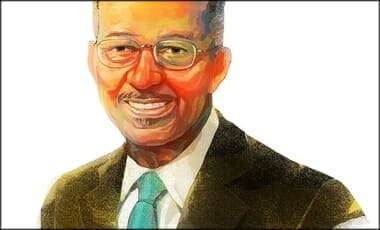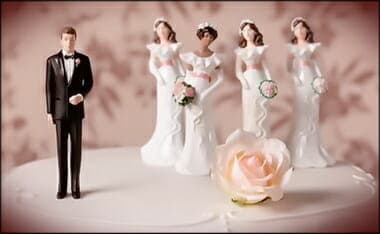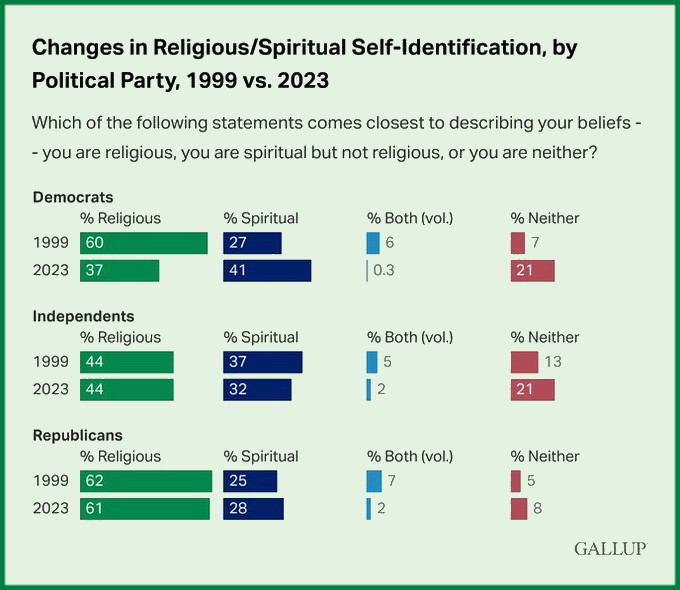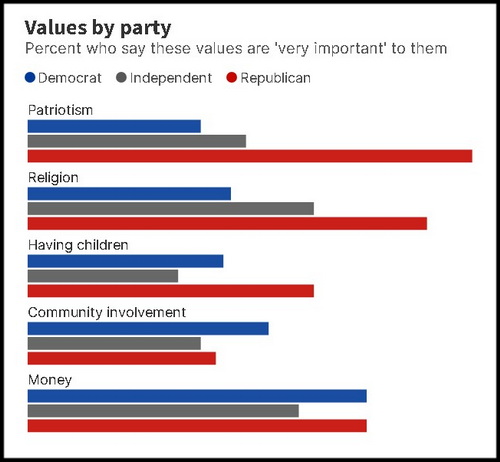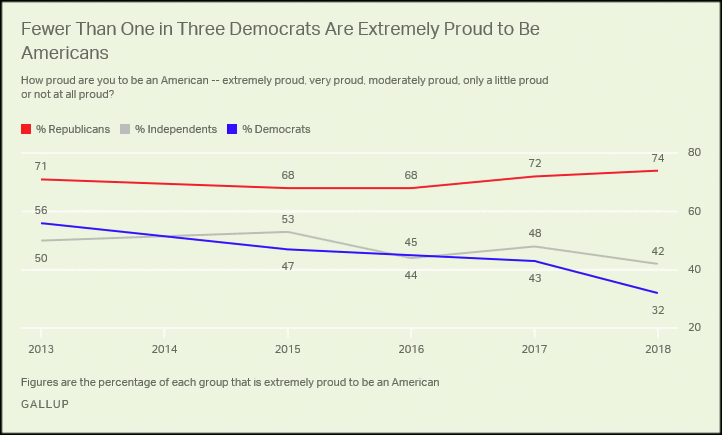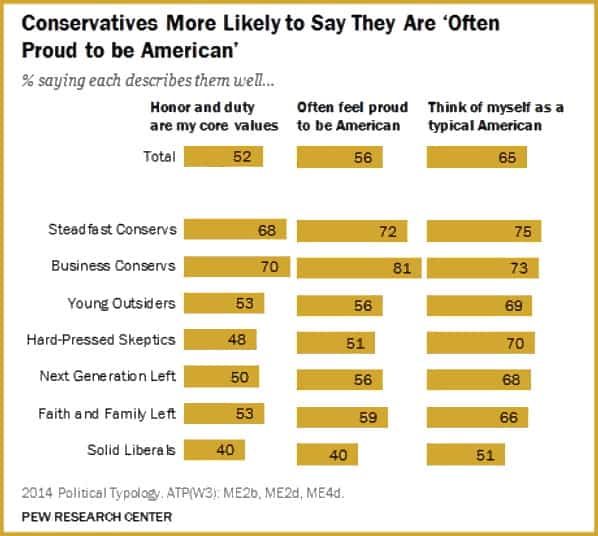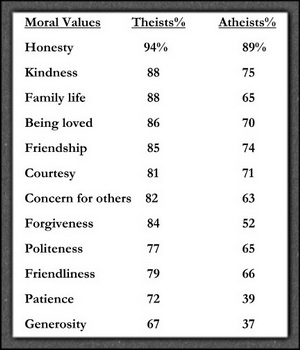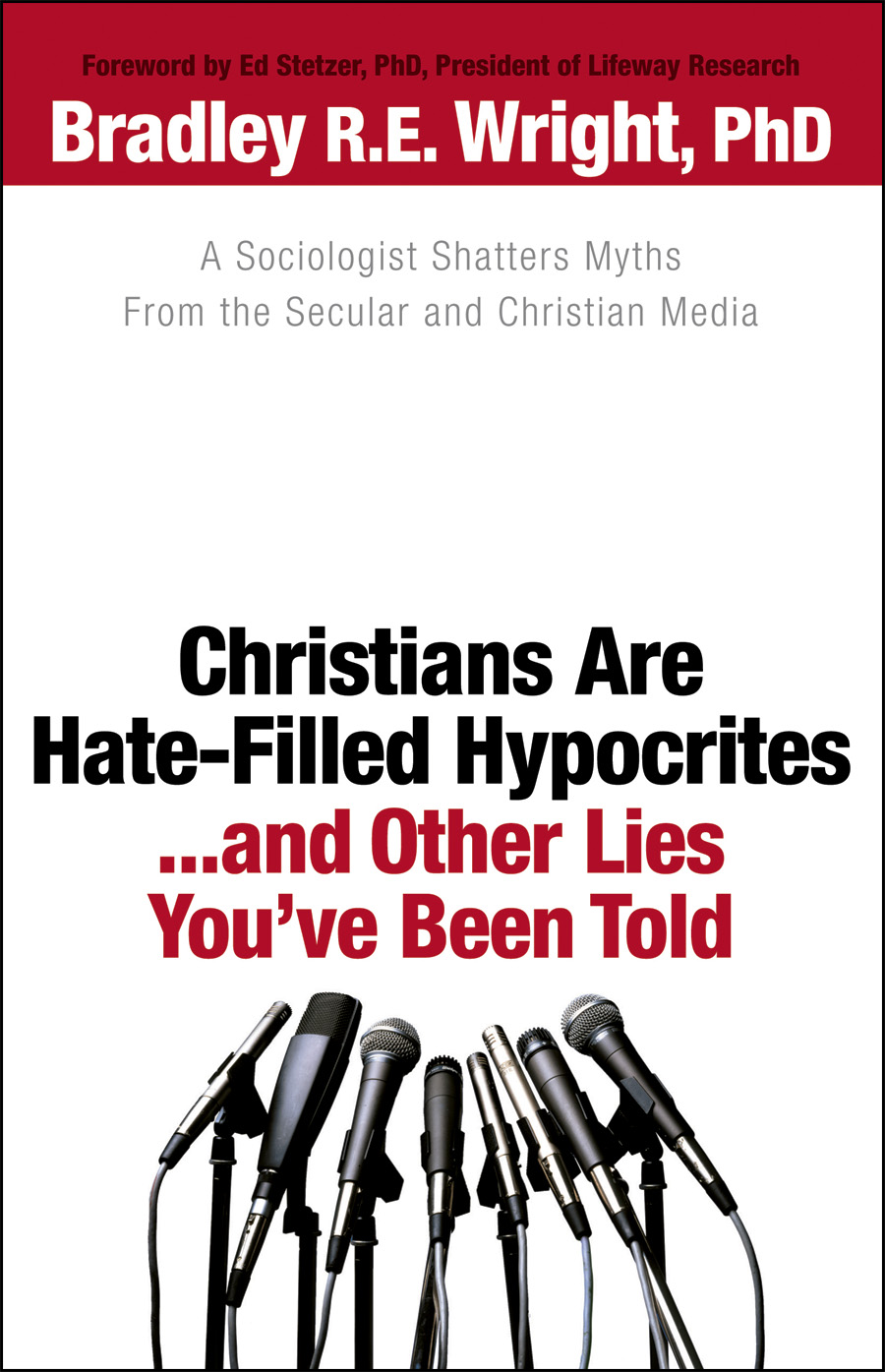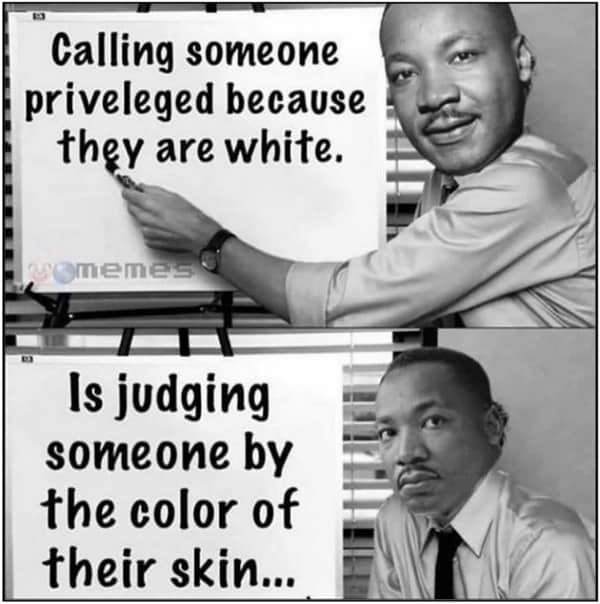This is the first time I have heard of Pitirim Sorokin, so naturally I went on a bender. After reading quite a bit this morning, I can see that he was in one sense an early Thomas Sowell. here are two small quotes from his work, THE AMERICAN SEX REVOLUTION (free PDF)
The reasons for this high evaluation of marriage are obvious. Marriage is a social evidence of the physical, mental, emotional, spiritual, and civic maturity of the individual. It involves the momentous transformation of a boy into a husband-father, and of a girl into a wife-mother, with corresponding changes in their social position, privileges, and responsibilities.
[….]
Preceding chapters have shown a rapid increase of divorce, desertion, and separation, and of premarital, and extramarital relations, with the boundary between lawful marriage and illicit liaisons tending to become more and more tenuous. Still greater has been the deterioration of the family as a union of parents and children, with “fluid marriages” producing a super-abundance of the physically, morally, and mentally defective children, or no children at all.
As a consequence, in spite of our still developing economic prosperity, and our outstanding progress in science and technology, in education, in medical care; notwithstanding our democratic regime and way of life, and our modern methods of social service; in brief, in spite of the innumerable and highly effective techniques and agencies for social improvement, there has been no decrease in adult criminality, juvenile delinquency, and mental disease, no lessening of the sense of insecurity and of frustration. If anything, these have been on the increase, and already have become the major problems of our nation. What this means is that the poisonous fruits of our sex-marriage-family relationships are contaminating our social life and our cultural and personal well-being. They have already passed beyond the phase of being possibly dangerous, and have become ugly and deadly realities as solid and certain as any facts can be.
See another free resource from Sorokin: Contemporary Sociological Theories: A Popular Scientific Study
Here is a decent synopsis of The American Sex Revolution by Francis Russell:
In the mid-1950s the Harvard sociologist Pitirim Sorokin published a provocative little book on The American Sex Revolution that would prove uncanny in its prescience. Indeed, Sorokin’s book makes for most engaging reading today as it may be the only work of social criticism written during the middle years of the 20th century that so accurately gauged the direction in which America and Europe were headed that its analysis is even more relevant to the social situation that exists at the present time than the one that existed when it was first written. A full half century after its appearance, hardly a page of The American Sex Revolution is dated, and readers today will look repeatedly at the publication date for reassurance that the book was actually written during the supposedly tranquil years of the Ozzie and Harriet era.
The harmful trends that Sorokin described in his book, many of which were cause for only moderate concern in their own time, would become much more extreme in subsequent decades, and today are generally acknowledged as a major source of social and cultural decline in what is not inaccurately described as a “”post- Christian”” West. These include declining birth rates and diminished parental commitment to the welfare of children; vastly increased erotic content in movies, plays, novels, magazines, television shows, radio programs, song lyrics, and commercial advertising; increased divorce, promiscuity, premarital sex, extramarital sex, homosexuality, spousal abandonment, and out-of-wedlock births; and related to these developments, a growing increase in juvenile delinquency, psychological depression, and mental disorders of every description. So extreme have some of these trends become, particularly since the late 1960s, that many today can look back nostalgically upon the 1950s when Sorokin issued his warnings as a period of great social stability, “family values,” and dedication to traditional Christian understandings of sex, marriage, and child rearing.
Here is a VERY LONG quote from one of the sources Dr. Mohler is most likely referencing, of which the above quotes are taken from:
Birth, marriage, and death are the great events in the life of any individual, for they mark the beginning, middle, and end of each human existence. All societies have viewed them as of the utmost importance, not only for the individual, but also for the survival and well-being of the community. Thus every society has most carefully defined and regulated the customs concerning these events. And of them, marriage has been considered as important, and has been as carefully regulated, as have the mores relating to birth and death.
The reasons for this high evaluation of marriage are obvious. Marriage is a social evidence of the physical, mental, emotional, spiritual, and civic maturity of the individual. It involves the momentous transformation of a boy into a husband-father, and of a girl into a wife-mother, with corresponding changes in their social position, privileges, and responsibilities. For a large majority of men and women, marriage is the most vital, the most intimate, and the most complete unification of body, mind, and spirit into one socially approved, indivisible “we”. In a good marriage, the individual egos of the parties merge. The joys and sorrows of one become the joys and sorrows of the other. All their values, aspirations, and life-experiences become fully shared. Their mutual loyalty is unconditionally pledged until death do part them. The bond of marriage is truly sacred and indissoluble.
Such an all-embracing union serves as the most powerful antidote against loneliness. It develops and expresses love at its noblest and best, in the moral ennoblement of the married and the true socialization of their children.
From the remotest past, married parents have been the most effective teachers of their children, and the family has been the most important school for the transformation of newly-born human animals into intelligent, socially responsible personalities. This decisive educational role is well summed up in the dictum: “What the family is, such will the society be.”
Furthermore, the cultivation of mutual love and the task of educating their children stimulate married persons to release and develop their best creative impulses. For surely the mission of molding their own and their children’s personalities is as ennobling as the creation of a masterpiece in the arts or sciences. And regardless of education, social status, religion, or economic conditions, each married couple derives from a good marriage the fullest satisfaction of this creative urge which is in all of us. In this sense, marriage is the most universal and the most democratic school for the development of the creative potential of every human being. This creative urge is possibly the most distinctive mark of the human species, and its satisfaction is an absolute necessity for human happiness.
Enjoying the marital union in its infinite richness, parents freely fulfill many other paramount tasks. They maintain the procreation of the human race.
Through their progeny they determine the hereditary and acquired characteristics of future generations. Through marriage they achieve a social immortality of their own, of their ancestors, and of their particular groups and community. This immortality is secured through the transmission of their name and values, and of their traditions and ways of life to their children, grandchildren, and later generations.
The fulfillment of these tasks explains why marriage has been regarded by all societies as the culminating point of human existence, and as the most decisive factor in the survival and well-being of the societies themselves.
In contrast to marriage, illicit sex relations cannot and do not fulfill these tasks. The relations between a prostitute and her client, between a mistress and het patron, and between all sorts of incidental “lovers”, have never been considered as evidence of mental, moral, or social maturity of the partners. On the contrary, they have been viewed as a sin, or as a crime, or as a symptom of moral and social degeneration of the partners involved. Usually, illicit sex relations rarely go beyond a shortlived “copulational” union. Each partner remains a mere sex apparatus for the satisfaction of the lust of the other. The partners remain largely unknown to each other; their egos are not merged into one “we” nor is their selfishness tempered by mutual devotion and love.
Incidental sex liaisons do not yield any consortium omnir vitae, divini et &maxi juris communicatio, as the Roman Law defined marriage. [Translation: the partnership of all life, the sharing of the divine and the greater right.] For a short moment of sensual pleasure the parties usually pay the costly price of frequent and lasting periods of anguish, anxiety, fear, remorse, hate, and pain. Frequently the evanescent sex pleasure wrecks their whole life. In many countries adulterers and fornicators have even been punished by death, mutilation, torture, dishonor, or imprisonment.
Nor, with the exception of common law “marriages”, are these liaisons schools of moral, mental, and social education of the partners. To the contrary they often lead to demoralization, social irresponsibility, mental disorders, and crime; and they thus do not contribute to the development of the creative potential.
Finally, these relations do not serve the vital task of procreation, of determining the qualities of future generations and the social immortality of the partners. Asa rule, they remain sterile and childless. If sometimes they lead to the birth of children, these are stigmatized as “illegitimate” and “born-out-of-wedlock,” victims of animal passion and human folly.
Any considerable change in marriage behavior, any increase in sexual promiscuity, and illicit relations, is pregnant with momentous consequences. A sex revolution drastically affects the lives of millions, deeply disturbs the community, and decisively influences the future of society. If, therefore, the American nation and, indeed, Western society as a whole are passing through such a revolution, it deserves as much public attention as any political or economic change.
The questions now before us are: Is indeed our nation drifting toward an unknown destination, carried by the powerful undertow of a sex revolution? If so, what are the evidences of it? What are its possible consequences? And where might it carry us? A careful survey of the factual evidence gives fairly conclusive answers to these vital questions.
A FEW TELLING STATISTICS
In 1870 there was one divorce for every 33.7 marriages contracted; in the last few years, one per 2.5 to 3. In 1890, we had three divorces per 1000 married females; in 1946, 17.8 per 1000. In 1867 we had 0.3 divorces per 1000 of our population; in 1947, 3.4. The supposedly sacred bond of marriage is now being broken several times more frequently than in preceding decades. And, with minor fluctuations, divorce has been and is steadily increasing.
Similar is the increase of “the poor man’s divorce.” According to the National Desertion Bureau, deserted wives comprise between 3 and 4 per cent of all married women. In 1953, desertion cost the American taxpayer about $252,000,000 for the support of abandoned wives and children, about three and a half million of whom received little or no money from the father.
As a result of the mounting number of divorces, separations, and desertions, about 12,000,000 of the 45,000,000 children in the United States do not live with both parents. Due to no fault on their own part, these children are deprived of security and love, and forcibly exposed to all the indemencies of the half-parental and non-parental homes, or of no homes at all. If divorce and desertion mean the disintegration of marriage and the family as a union of husband and wife, these deserted children signify the disintegration of the family as a union of parents and children.
Further disintegration manifests itself in the shrinking of the size of the family. The percentage of families with six or more members was 51.8 in 1790, 32.8 in 1900, 20.1 in 1930, and only 15.7 in 1940. The percentage of childless married couples has now reached between 15 and 20; these and one-child marriages comprise between 40 and 45 per cent of all families. In the childless marriage the family as a union of parents and children does not exist; in the marriage with only one child, it fails in the task of providing for the future of our nation, for to maintain the present population, the family must average 2 or 3 children.
These figures suggest that the candle of the American marriage and family is being burned at both ends,—both as a union of husband and wife, and as a. union of parents and children. And with their disintegration, marriage and the family progressively fail in the performance of the tasks of maintaining the well-being of the individual and ensuring the survival of the nation itself.
[….]
If the present rate of decline of premarital virginity continues, this virtue is likely to become within a few generations a myth of the past. And the present increase of extramarital relations threatens to replace the monogamic marriage itself by some sort of polygamous, or polyandrous, or anarchic, or “communal” pseudo-marriage.
[….]
Philosophies viewing sex as one of the two main factors of historical processes; sociological theories of marriage as an institution established mainly or only for satisfaction of the sex drive; educational theories prescribing the teaching experimentally of the facts of life to children as early as possible; various yarns advocating in the name of science such practices as free love, experimental sexual relations for teen-agers, trial and companionate marriages, and so on and so forth,—these and similar gospels have successfully penetrated the disciplines of the social sciences and are regarded by many as “the last word”.
In spite of the utterly unscientific nature of these theories, and notwithstanding their extremely degrading effect; in spite of the fact that they drag into filthy sewers almost all the great values of humanity, beginning with love, marriage and parenthood, and ending with the fine arts, ethics, science, and religion; in spite of all this, these theories continue to be accepted by many so-called scientists, and to win an ever-growing public. Their outstanding success is a tragic sign of sexual obsession and of mental aberration, which now extend to a legion of our writers, artists, business men, government officials, teachers and preachers, social workers, and the public at large.
[….]
The growth of sexual anarchy, divorces, desertions, and orgies; of emancipation and “masculinization” of women and effemination of men, together with radical changes in marriage and family laws, which largely dissolved their sacredness and inviolability, and an attendant decrease of birth rate, proceeded hand in hand with a growth of irreligiosity and of vulgar sensualist ethics and frame of mind. This demoralization spread over all classes of Roman society. In the time of Julius Caesar, about 600,000 of the proletarian population were supplied by the State with rations of oil, pork, wine, clothing and other necessities, and special “cards” (lasciva nomismats [playful coins]) entitling the bearer to the services of the Roman prostitutes.
The sensual ethic of this period is well illustrated by epitaphs on the tombstones of many an obscure person: “Horror does not seize me when I think of the putrefaction of my body; nothing further touches us.” “I was; I am not; I do not care.” “Es, bibe, lode, veni” (Eat, drink, play, come hither). “Indulge in voluptuousness, for only this pleasure wilt thou carry away with thee.” “Let us eat and drink, for tomorrow we die.” “What I have eaten and what I have drunk,—that is all that belongs to me.” “Baths and wine and love impair our bodies; but baths, wine, and love make life. While I lived, I drank willingly; drink, ye who live.” “The supreme end is pleasure.” Such cynicism, skepticism, and sensualism must have been profound and widespread to have found expression on the tombstones of ordinary persons.
Subsequently, despite temporary improvements and minor fluctuations, sexual and sociopolitical disorders continued to undermine the dominant Sensate form of Roman culture, society, and Empire and brought them to their irretrievable decay. Salvation and regeneration came from Christianity with its anti-materialistic, anti-sensualistic, and anti-erotic system of values and moral commandments. Forbidding even a lustful look at a woman or man, declaring sinful all premarital sex relations, extolling sexual chastity and continence, and allowing sexual life only in the form of the socially sanctioned marriage, Christianity was able to curb greatly the prevailing sexual anarchy and to restore the sanctity of marriage, and the family, and the normal or lawful forms of sex activity. During the subsequent centuries of European history the dose connection between the sexual and the sociopolitical disorders can be observed in the periods of almost all great upheavals and revolutions in practically all European countries.
[….]
During the French Revolution, the tidal wave of sexual anarchy swept over the whole nation. The divorce decree of September 20, 1792, eliminated practically all obstacles to divorce and lowered the minimum age of marriage to thirteen for women and fifteen for men. The divorce rates skyrocketed so high that in 1796-97 their number surpassed that of marriages. Still greater was the increase in desertions. The number of foundlings born out of wedlock and abandoned rose from 23,000 in 1790 to 63,000 in 1798. There was a similar increase in the number of prostitutes, whose “disorders and shameless behavior surpassed in heinousness all that can be conceived.” Not only grown-ups, but even children behaved in a scandalous way. “The restraints of sexual instincts were abandoned. In summer among the crowds standing in line before shops, abominable scenes of human bestiality and of Paris impudence could be seen… . Many prostitutes brought their bedding and openly performed all kinds of sexual abominations.” The festivals of “Liberty” and “The Goddess of Reason” were accompanied by orgies and saturnalia. After the Termidor, “the young men and women grew openly licentious, and ribaldry became a fashion…: All else was forgotten in the lust of pleasure. Next to the sans culottes we see the `shirtless girls’… . The family pot is overturned… . Women pass from hand to hand. Some married one sister after another, and their own mothers-in-law. The dregs of society resemble Sodom and Gomorrah.” And side by side with this common licentiousness, sadistic actions became daily occurrences. In brief, debauchery reached its maximum.
[….]
An increase of licentiousness occurred in the upper and to some extent the middle strata of Russian society before the Revolution of 1917. Rasputin and other sex gluttons corrupted the aristocracy, and their influence added powder to the gigantic magazine of accumulated antagonisms among the various classes and groups of Russia. There followed after the Revolution a period of sex anarchy, details of which will be given in a later chapter. Suffice it to say for the present that in the first phase of the Revolution, roughly from 1918 to 1926, the institutions of marriage and the family were virtually destroyed within a large portion of the urban population, and greatly weakened throughout the whole Russian nation.
These examples, corroborated by evidence from almost every important revolution and social disturbance from the oldest Egyptian upheaval c. 2500 B.C. to the present time show the close connection between sexual and sociopolitical revolutions. It is for this reason that every debauchee is a contributor to social and political disorders, one of the “revolutionaries” undermining the existing system of values, institutions, and order. And conversely, political and social revolutionaries contribute to the spread of sexual anarchy.
[….]
The preceding chapters have demonstrated the far-reaching influence of excessive sexual freedom upon its devotees and upon society. We now come to a yet more momentous problem: What, if any, is the relationship between the disorderly and the tempered sexual life, on the one hand, and the creative growth and the decline of society, on the other? Does the sex factor appreciably condition the sociocultural progress or regress of groups: tribes, nations, religious bodies, empires, and other communities? If it does, then which of the prevailing modes of behavior,—free or tempered, restrained or unrestrained, —helps the society’s cultural growth, and which mode contributes to its decline?
TWO GENERALIZATIONS
The subsequent propositions tentatively answer these questions. We shall begin with two main generalizations, followed by several propositions of a qualifying character.
- The regime that confines sexual life within socially sanctioned marriage, and that morally disapproves and legally prohibits premarital and extramarital relations provides an environment more favorable for creative growth of the society than does the regime of free or disorderly sex relationships which neither morally disapproves nor legally prohibits premarital and extramarital liaisons.
- The regime that permits chronically excessive, illicit, and disorderly sex activities contributes to the decline of cultural creativity.
What are the proofs for these generalizations?
In the first place, all the detrimental effects,—physical, mental, moral and social,—of illicit and excessive sex behavior given in the preceding chapters form a body of evidence clearly supporting these propositions. If sex gluttony and illicit sex activity are harmful to their devotees in all these respects, then they cannot but be harmful to the creative growth of societies which tolerate them.
Yet another set of proofs is highly important. It consists of a careful, systematic, inductive comparison of the prevailing modes of sexual life in: (a) preliterate societies with more advanced, and those with less advanced cultural and social organizations; and (b) historical societies in the periods of their growth, and in the periods of their decline. This sort of confrontation shows that the more advanced or creative preliterate societies display greater restraint and more tempered sexual life than the more primitive or less creative groups. Further, the comparison demonstrates that in the life processes of historical societies, the periods of their cultural and social growth have been almost uniformly marked by a very tempered sexual regime, while the periods of their decline have been stamped by sexual anarchy.
A third set of evidence is supplied by recent “experiments” in this field, including the Communist regimes in Soviet Russia and China, and the verifiable increase of sexual freedom among Colonial peoples, a freedom resulting from the impact of Western culture.
When all three classes of evidence are considered, the resultant testimony is conclusive, especially when compared with the few fragments of uncertain “proofs” sometimes brought forward by the partisans of sex freedom.
[….]
To put the matter another way, reduction of sexual freedom is accompanied by a rise in cultural creativity. Among 59 preliterate societies investigated, in those where the young men and women were permitted prenuptial freedom, their mentality tends to be shaped into a Zoistic mould. If they are compelled to accept occasional continence, their mentality is moulded into a Deistic form. Finally, if besides prenuptial continence, monogamic faithfulness is required, especially from women, the mentality of the society tends to become Rationalistic.
Civilized societies which have most strictly limited sexual freedom have developed the highest cultures, In the whole of human history not a single case is found in which a society advanced to the Rationalistic culture without its women being born and reared in a rigidly enforced pattern of faithfulness to one man. Further, there is no example of a community which has retained its high position on the cultural scale after less rigorous sexual customs have replaced more restricting ones. Thus, when under the influence of Christianity the sexual freedom of the Teutonic tribes was limited, this restriction was one of the most important forces affecting subsequent cultural progress. And when the polygamous Moors in Spain married monogamous Christian and Jewish women, they progressed from a Deistic to a partly Rationalistic culture.
The explosions of creative energy in polygamous societies are due to two factors: to the previous existence of a strict postnuptial monogamy of several generations, as among the early Persians, the Huns, the Mongols, and the Macedonians; and to a strict prenuptial chastity and postnuptial monogamy of the women in the polygamous groups.
When the ruling group and the society as a whole relax their code, within three generations there is usually a cultural decline, as was the case in the later stages of the Babylonian, the Persian, the Macedonian, the Mongol, the Greek, and the Roman civilizations, as well as at the end of the Old and the Middle Kingdoms and of the New Empire, and during the Ptolemaic period, in Egypt. Considering that prenuptial chastity and strictly monogamous marriage, for women at least, are a maximum reduction of sex freedom (next to absolute celibacy, which if general would lead to the extinction of the group) we find that among civilized societies those which have remained strict in their sexual codes for the longest period have reached the highest levels.
Unwin finds that the Babyions, the Egyptians, the Athenians, the Romans, the early Arabians, and the Anglo-Saxons had a strict monogamy during the early period of their social expansion and cultural and intellectual growth. The authority of the pater families over the members of his family, and of the husband over his wife (manus mariti) was unlimited. Sexual life was confined within marriage, and the mores were chaste and temperate. Violations of the prescribed rule of conduct did occur now and then, of course, but they were few, and were unanimously disapproved and severely punished. These limitations of sexual activity permitted such societies to accumulate an enormous reserve of social energy which found its outlet in creative growth,—intellectual, aesthetic, religious and social. Hence there occurred a vigorous expansion of these societies, accompanied by an astounding ability to defend themselves against their enemies.
With the expansion and growth of these societies, however, the stern regulations of sex relationships were progressively replaced by weaker ones. Sexual freedom widened until it encompassed the whole society, and eventually turned into anarchy. Wives and children were emancipated from the absolute power of the pater familiar, and their newly won equality brought with it sexual freedom. Within three generations from the moment of significant expansion of sexual freedom, the cultural and social creativity of these societies began to decline.
This lag between the development of sex freedom and the decline of creativity is due to the fact that the younger generations need time to be “educated” in the new patterns of behavior. Thereafter, the decline proceeds hand in hand with the expansion of sex freedom. However, if the sex anarchy is checked, and replaced by new restrictions, the process of decline may be halted and within a century or so, may be replaced by a cultural and social renaissance. When it is not checked, the decline of the societies soon becomes irreversible and leads to their historical degeneration.
With unrelieved monotony this cycle has been repeated many times.
Such are the essential conclusions of Unwin’s study. Though in some secondary points it is questionable, its main conclusions have been confirmed by other scholars, and are identical with the two propositions given at the beginning of this chapter.
The third set of evidence referred to earlier in this chapter is supplied by experiments in Soviet Russia in the 1920’s and by the degeneration of many preliterate colonial peoples.
Most instructive is undoubtedly the radical attempt of the Soviets to eliminate “capitalistic” monogamy and to establish complete sexual freedom as a cornerstone of the Communist economic and social regime.
During the first- stage of the Revolution, its leaders deliberately attempted to destroy marriage and the family. Free love was glorified by the official “glass of water” theory: if a person is thirsty, so went the Party line, it is immaterial what glass he uses when satisfying his thirst; it is equally unimportant how he, satisfies his sex hunger. The legal distinction. between marriage and casual sexual intercourse was abolished. The Communist law spoke only of “contracts” between males and females for the satisfaction of their desires either for an indefinite or a definite period,—a year, a month, a week, or even for a single night. One could marry and divorce as many times as desired. Husband or wife could obtain a divorce without the other being notified. It was not even necessary that “marriages” be registered. Bigamy and even polygamy were permissible under the new provisions. Abortion was facilitated in state institutions. Premarital relations were praised, and extramarital relations were considered normal.
The old pragmatic test: “By their fruits ye shall know them”, provides the answer to the question whether this sex freedom was practical.
Within a few years, hordes of wild, homeless children became a real menace to the Soviet Union itself. Millions of lives, especially of young girls, were wrecked; divorces skyrocketed, as also did abortions. The hatreds and conflicts among polygamous and polyandrous mates rapidly mounted,—and so did psychoneuroses. Work in the nationalized factories slackened.
[….]
This vicious cycle has been repeated many times. Greece before the second half of the sixth century B.C. bad a strict code governing sexual life, which was confined to indissoluble marriage. All transgressors were punished, frequently by being outlawed from family and kindred. At the end of that century, however, a moderate relaxation of legal and factual restraints became noticeable, and during the fifth and the first half of the fourth centuries B.C., this freedom continued to grow without degenerating into sexual anarchy. These same centuries are marked by an explosion of creativity in many fields. This is the Greece of Socrates, Plato, and Aristotle in philosophy; of Polydetus and Polygnotus in painting; of Pheidias, Praxiteles and Scopes in architecture and sculpture; of Pindar, Aeschylus, Sophides, Euripides, and Ads-tophanes in literature; of Terpander, Simonides of Kios, Agathocles, Melanippides the Older, Phrynis, Bacchilides in music. The same period witnessed the greatest number of scientific discoveries and technological inventions made by the Greeks, (6 and 3 in the eighth and seventh centuries; 26, 39, 52 in the sixth, fifth, and fourth centuries; 42, 14, 12 in the third, second, and the first centuries B.C.). Finally, in the same period Greece reached the zenith of her political creativity add influence (See the details in my Social and Cultural Dynamics, vols. 1, 2, 3, passim. See there also references to a vast literature on these problems. This note concerns also the subsequent cases.)
Beginning with the second half of the fourth century B.C., sexual freedom increasingly tends toward anarchy; and during the third, second, and first centuries B.C., it spreads throughout the entire Hellenistic world. This same period witnesses a rapid decline of Greek creative genius in all cultural fields, accompanied by depopulation, demoralization, and the loss of political independence.
A somewhat similar cycle occurred in Rome. There, until the third century H.C., sexual life was strictly regulated. However, under the impact of Greek influence, an expansion of sexual freedom begins and gains in the second and first centuries B.C. And exactly these centuries saw a notable growth of cultural creativity, led by Virgil, Lucretius, Varro, Cato the Younger, Ovid, Cicero, and other eminent writers and philosophers. While in the period preceding the first century B.C., the number of Roman scientific discoveries and inventions fluctuated from 1 to 5 per century, it rises to 20 in the first century B.C., to 35 in the first century A.D., and then rapidly subsides to 13, 6, 15, 4, 1, 0 from the second through the seventh centuries A.D.
The great flowering of Roman culture occurred during the age of Augustus. He tried to stem the drift toward sex anarchy, which was increasing especially among the upper classes of Rome, and through a series of rather stern law had some limited success. But all in all, he and his successors largely failed in this task. Debauchery continued rampant in the first three or four centuries A.D.; and with minor fluctuations this same period saw a decline of the creative power of Rome, and brought the Western Empire to irretrievable decay in the fifth century.
Still another example of this minor cycle is given by Italy and other European nations during the Italian Renaissance and the Protestant Reformation. Before the thirteenth century, the behavior of their populations was restrained not only by the strict code of Christianity, but also by the family mores of their “barbaric” ancestors. The family was strong; marriage was a sacrament indissolubly binding the parties, premarital and extramarital relations were prohibited and punished.
The thirteenth and fourteenth centuries are marked by an obvious relaxation of these restraining codes; and during the next two, the sexual freedom of the Italian, and in a lesser degree of the European, populations rapidly increased and spread until it became, especially in the upper and intellectual strata, sex anarchy. In the seventeenth century, thanks to the Catholic Counter-Reformation and the vigorous efforts of ascetic elements in the Protestant Reformation, the further spread of anarchy was prevented, and sex freedom was notably curtailed. Subsequently, for some hundred and fifty years, these countries were distinguished by a fairly liberal but orderly and limited sexual freedom.
The centuries from the thirteenth to the seventeenth were also a period of great creative energy. They gave us Giotto, Raphael, Leonardo da Vinci, Michelangelo, Gemini, and a vast galaxy of the great painters and sculptors of the Italian. Renaissance; Brunellechi, Alberti, and Bramante in Italian architecture; the “ars nuova,” A. and G. Gabrieli, Gesualdo, Palestrina, and other masters of the Italian school in music; Dante, Petrarca, Boccaccio, Lorenzo Valla, Ariosto, Tasso, Boiardo in literature; Guicchiardini, Machiavelli, and other eminent social and political thinkers; St. Thomas Aquinas, Pico della ,Mirandola, G. Bruno, Marcilius Ficinus, and others in philosophy; Galileo and others in science. The number of scientific discoveries and inventions in Italy increased from two in the twelfth to 1.4 in the thirteenth century, and then to 27 in the fourteenth, 45 in the fifteenth, 114E in the sixteenth, with a temporary decline to 111 in the seventeenth, and 75 in the eighteenth—the decline due possibly to the delayed consequences of the sex anarchy of the sixteenth century.
Somewhat similar were the courses of increased sex freedom and of cultural activity in several European countries during the same period, but possibly in none did the populations morally degenerate to the extent that the people of Italy did during the Renaissance. As already mentioned, the vigorous efforts of both the Catholic and Protestant churches stemmed the tide of sex anarchy, and permitted the West, for at least two centuries, to continue creative activities in all fields of culture, although it should be noted that the least fruitful of these were religion and ethics.
After the Victorian age in England, and somewhat earlier in Europe and the United States, the expansion of sex freedom resumed, and in the twentieth century has progressed to the extent of being near to anarchy. In conjunction with other forces, it has already brought two world wars and many smaller conflicts; the gigantic Russian revolution and a legion of lesser civil wars; a chronic political and social anarchy; and an appalling increase in crime. It has also manifested itself in a conspicuous decline of creativity in all fields of culture except those of science and technology, and even in these latter the creativity is becoming more and more destructive rather than constructive.
Such are typical cases illustrating the supplementary propositions concerning minor fluctuations of sexuality and creativity,…
[….]
Preceding chapters have shown a rapid increase of divorce, desertion, and separation, and of premarital, and extramarital relations, with the boundary between lawful marriage and illicit liaisons tending to become more and more tenuous. Still greater has been the deterioration of the family as a union of parents and children, with “fluid marriages” producing a super-abundance of the physically, morally, and mentally defective children, or no children at all.
As a consequence, in spite of our still developing economic prosperity, and our outstanding progress in science and technology, in education, in medical care; notwithstanding our democratic regime and way of life, and our modern methods of social service; in brief, in spite of the innumerable and highly effective techniques and agencies for social improvement, there has been no decrease in adult criminality, juvenile delinquency, and mental disease, no lessening of the sense of insecurity and of frustration. If anything, these have been on the increase, and already have become the major problems of our nation. What this means is that the poisonous fruits of our sex-marriage-family relationships are contaminating our social life and our cultural and personal well-being. They have already passed beyond the phase of being possibly dangerous, and have become ugly and deadly realities as solid and certain as any facts can be..
Our trend toward sex anarchy has not yet produced catastrophic consequences. Nevertheless, the first syndromes of grave disease have already appeared.
[….]
To be successful, this disinfection requires the free cooperative participation of every responsible member of our society, and especially of its creative leaders. And this participation must be consistent, devoid of the prevalent hypocrisy and self-contradiction of many a dregs, by not sponsoring unsuitable programs of radio, television, movies or press entertainment, by contributing nothing to all the causes, persons, and institutions which breed and propagate the `sexual borers.’
[….]
Cleansed from the sexual poisons, our women and men will regain not only their vital, mental, and moral sanity, but also the full integrity of the total person, enjoying the grace of total love at its happiest, noblest and best. These total persons can hardly fail to develop and release a vast stream of creative forces for rejuvenating and recreating our culture and social life. The renaissance of our culture and social institutions in its turn will retroactively exert an ennobling and creative influence upon the total personalities. Through this mutual invigoration of the personal, the cultural, and the social creative forces, the whole human universe will be improving and progressing from the initial kingdom of the human animal through the more and more ennobled kingdom of man, to the magnificent kingdom of the semi-divine Man-Creator.
Pitirim A. Sorokin, The American Sex Revolution (Boston, MA: Porter Sargent Publisher, 1956), 4-9, 14, 42-43, 96-98, 100-101, 101-102, 106-108, 110-114, 123-127, 132-133, 184-185, 185-186.
Almost 70 percent of black children are born to single mothers. In this video, Thomas Sowell explains the cause of this rise in the black communities, which many attribute to the legacy of slavery


